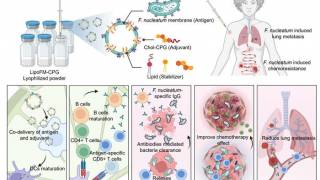HPV Diagnosis Leads to Shame & Bias

A new study announced that if a woman was told she had the Human Papollivirus (HPV), about 20 percent would feel embarrassed.
Furthermore, this study published on January 17, 2020, found that approximately 88 percent of women say they would not date someone with HPV.
As cervical screening across the UK expands, many more women will be told they have HPV.
There are more than 100 types of HPV recognized and classified by sequences on an outer surface protein of the virus. Most HPVs infect cutaneous epithelial cells, whereas some HPVs infect the mucosal basal epithelium.
In most cases, HPV goes away by itself, without doing the body any harm.
But these sexually-transmitted viruses can lead to cervical and throat cancers in women.
Jo’s Cervical Cancer Trust is concerned that gaps in understanding could mean that what might be considered a simple HPV diagnosis could actually have a damaging effect on the lives of women, says a related press release.
Jo’s Cervical Cancer Trust wants to reduce the shame and stigma associated with the common virus.
Its new research of 2,034 women aged 18 and over, collected between 9.12.19-12.12.19 by Censuswide on behalf of Jo's Cervical Cancer Trust, found a third of women (33%) consider HPV a taboo topic and almost four in ten (39%) would not want anyone to know if they had it.
The charity warns that lack of understanding about HPV could lead to impulsive decisions or accusations which could have a life-long impact.
Large numbers of women said a diagnosis would negatively impact their dating life (40%) or sex life (43%) and half would consider ending a relationship with someone who has HPV.
Many would not want to have sex with (41%) or kiss (23%) someone with the virus highlighting confusion over how common the virus is and how it affects the body.
The psychological impact of an HPV diagnosis was pronounced, with over a third (37%) saying that being told they had the virus would affect their confidence.
Robert Music, Chief Executive, Jo’s Cervical Cancer Trust said: “We must normalize the virus to reduce the emotional impact of diagnosis and ensure people know where to get trustworthy information and support. This means stripping away the stigma and getting the facts out.”
Calls to the charity’s Helpline about HPV have already risen 50 percent over the past year. It is expecting this to significantly rise as more women are tested for HPV and are calling on health professionals to be prepared for increases in questions from patients and encouraging open conversation.
In the USA, there are about 33,000 cancers caused by HPV each year, including 12,900 oropharyngeal cancers among men and women, 10,800 cervical cancers among women.
Although most sexually active adults have been exposed to HPV, new infections can occur with a new sex partner.
As of August 15, 2019, the Centers for Disease Control and Prevention (CDC) routinely recommends HPV vaccination at 11−12 years and can be started as early as age 9.
Around the world, there are 3 prophylactic HPV vaccines available: Gardasil 9, Gardasil, and Cervarix. As of late 2016, the 9vHPV Gardasil 9 is the only vaccine distributed in the USA.
HPV vaccine news
- December 4, 2019 – 25 clinical studies focused on the Human Papolivirus (HPV) were presented during the 2019 European Research Organization on Genital Infection and Neoplasia Congress.
- December 1, 2019 – ‘The first step in gynecological cancer prevention is knowing your family history,’ said Gizelka David-West, M.D., an oncologist.
Jo’s Cervical Cancer Trust is a UK’s cervical cancer charity, offering information and support to anyone affected and campaigns for excellence in cervical cancer treatment, care, and prevention. Its national Helpline is free, confidential and on 0808 802 8000.
HPV cancer vaccine news published by Vax Before Cancer.
Our Trust Standards: Medical Advisory Committee

























